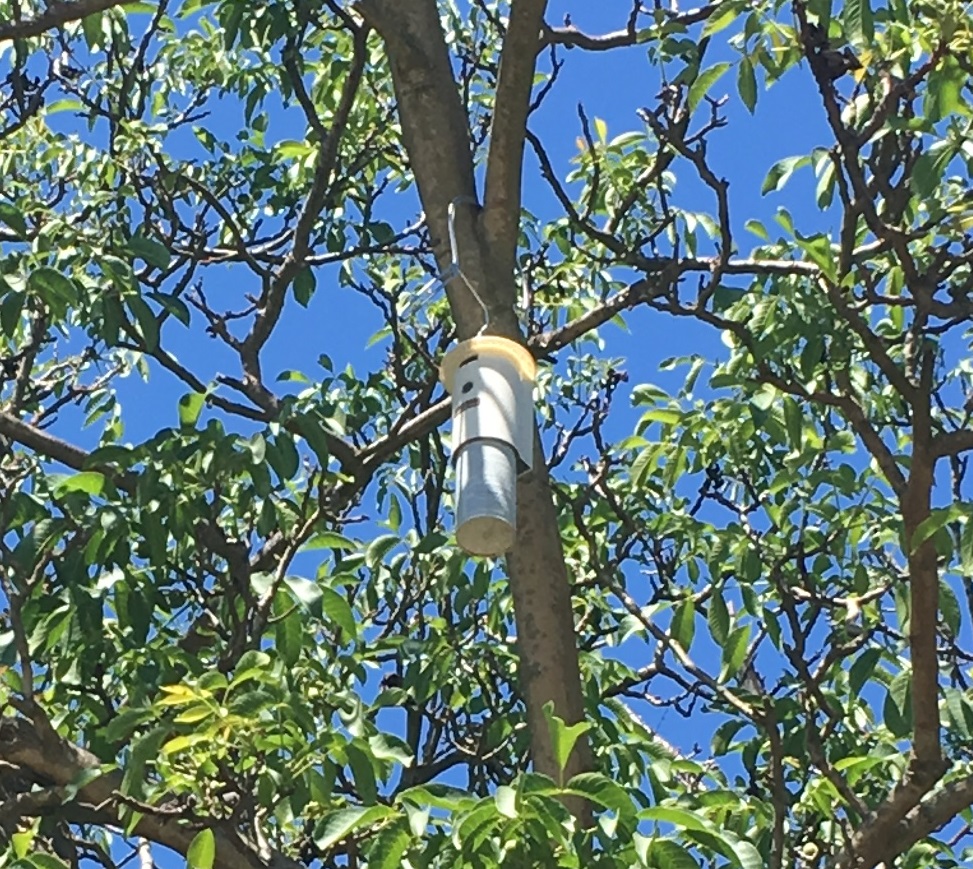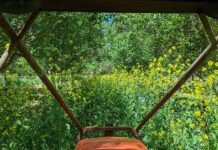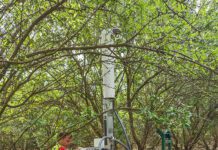
Community Alliance with Family Farmers (CAFF) is hosting a free on-farm field day that will cover past and present research on the impacts of biologically integrated orchard systems (BIOS) in walnut. CAFF’s BIOS for Walnut project is funded by CDFA through their Biologically Integrated Farming Systems (BIFS) program, which seeks to explore alternative approaches to pest management in California cropping systems.
The field day, which takes place on Aug. 27 in Linden, Calif., will cover mating disruption, cover cropping, pressure chambers for water use efficiency, and soil testing.
CAFF’s Ecological Pest Management Program Specialist Hanna Kahl said field days are an important component in getting information out to growers.
“Scheduled field days are critical for highlighting the work of this program,” she said. “Field days provide an opportunity for collaborating growers to share their experiences and knowledge while demonstrating how these practices work in the field. These events also bring together growers and extension professionals in order to share and discuss challenges, research and best practices for integrated pest management.”
Kahl believes that growers will have more success in adapting these practices on their farms when they get a chance to meaningfully engage with the practices’ practical and applied aspects.
“Knowing this information will increase the tools available for farmers to address pest management challenges on their farms,” Kahl said.
CAFF’s field day, along with its ongoing research, focuses on mating disruption for management of codling moth and navel orangeworm. Kahl said that while some growers are interested in mating disruption and understand the potential benefits, many haven’t tried it in their orchards.
“We hope to provide an opportunity for these growers to test out mating disruption on their farms and provide assistance in understanding the effectiveness and economic feasibility of using mating disruption.
“We have continued to collect data on codling moth and navel orangeworm numbers in traps, number of dropped nuts, nuts in the tree infested with moth larvae, and costs associated with the use of mating disruption compared to the standard management approach on each farm,” Kahl said.
CAFF’s field day and ongoing research also looks at the use of biological control practices, including cover crops and the release of predatory mites, to manage web-spinning spider mites, according to Kahl. “Cover crops provide pollen and habitat that can increase densities of several predators, such as big-eyed bugs and minute pirate bugs,” she said. “Augmentative releases of predatory mites could further reduce mite densities.
“The effects of cover crops and release of predatory mites has not been examined thoroughly in walnut systems,” Kahl continued. “If effective, then this approach could be used as a sustainable alternative practice to manage spider mites in walnuts.”
According to Kahl, CAFF has established mixed cover crop plantings and released predatory mite species (Galendromus occidentalis and Neoseiulus californicus) into orchards and are sampling spider mites and their predators using sticky cards and leaf samples.
To attend CAFF’s upcoming field day and to find additional information about the event, visit the registration page.
















